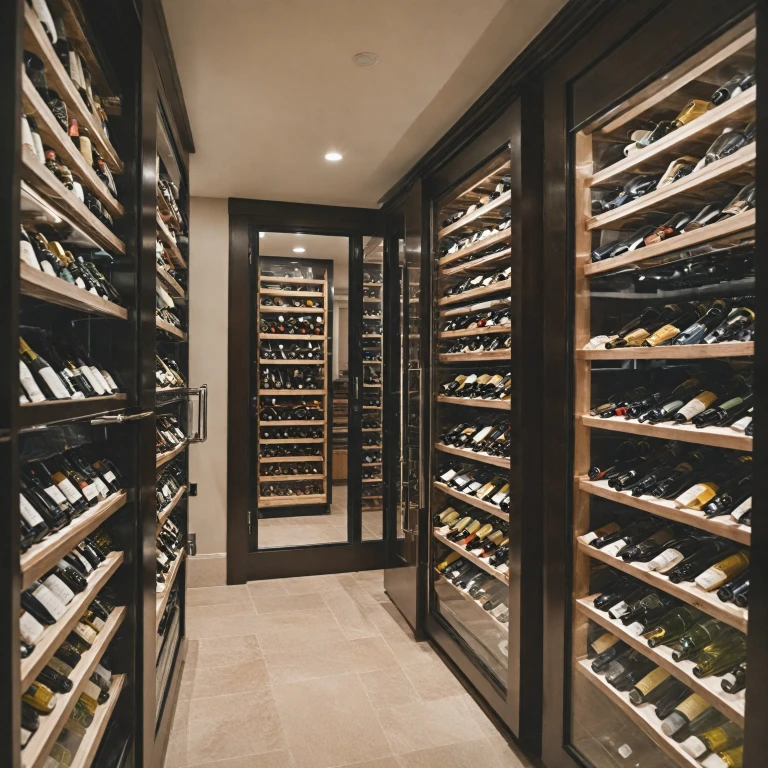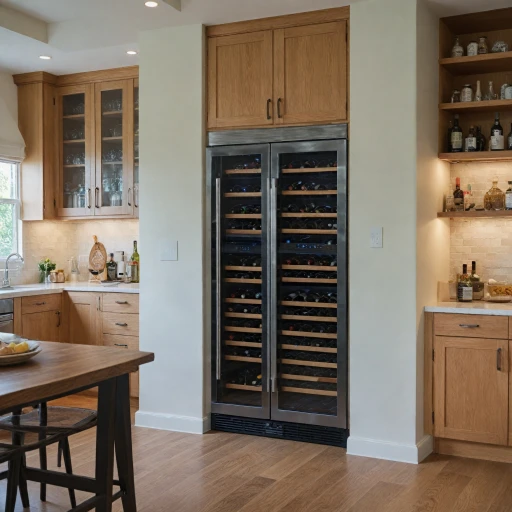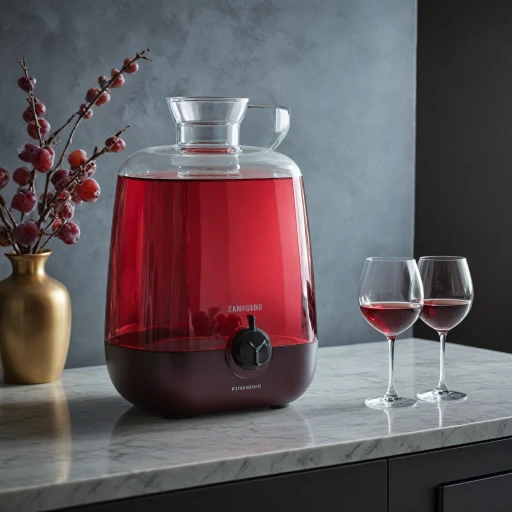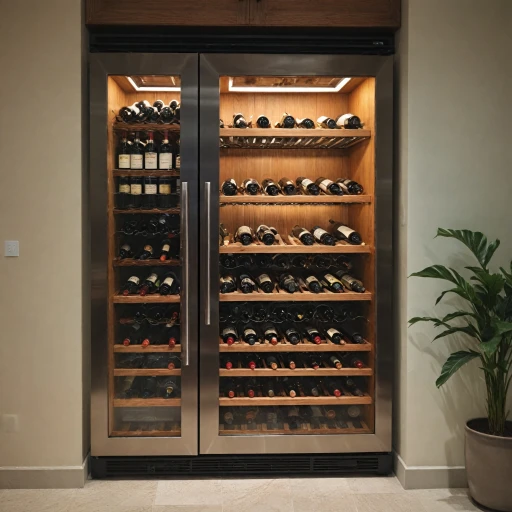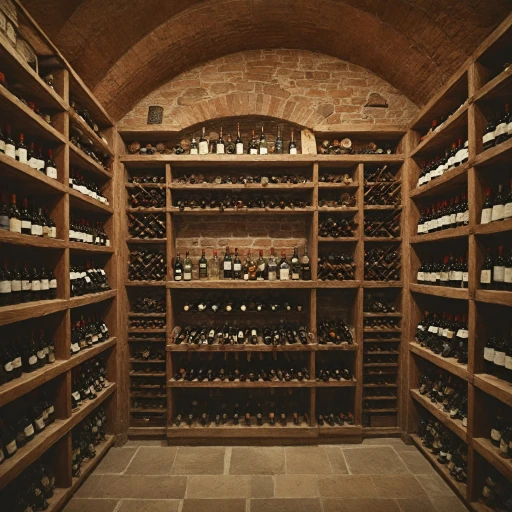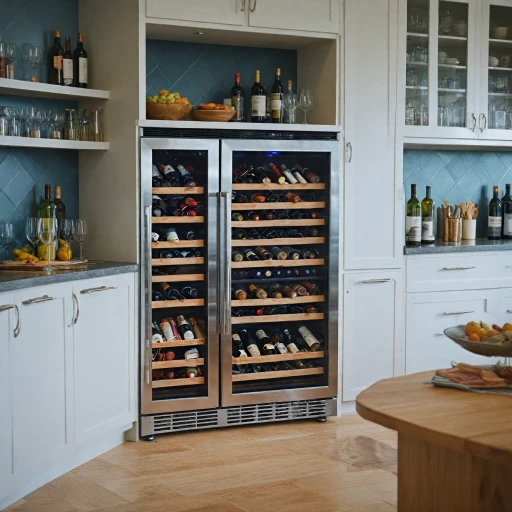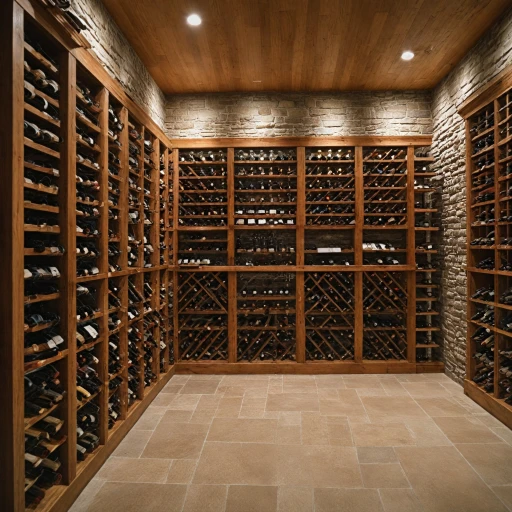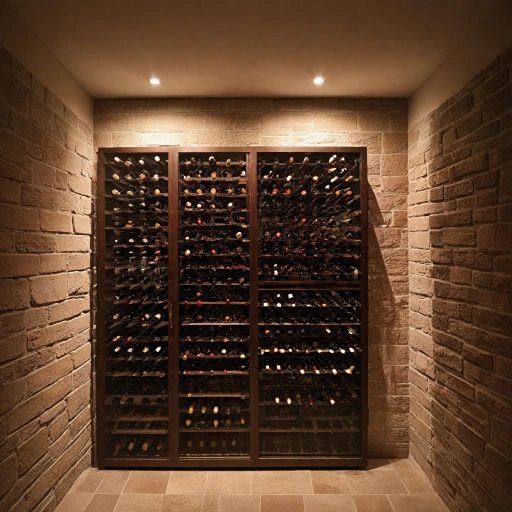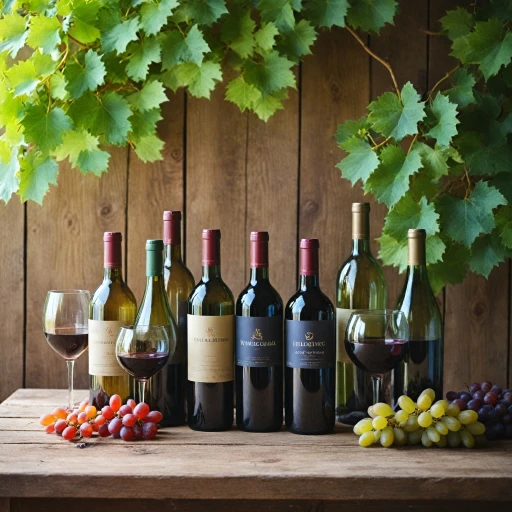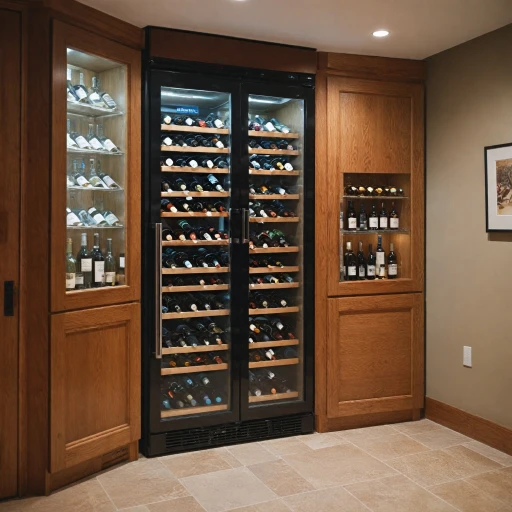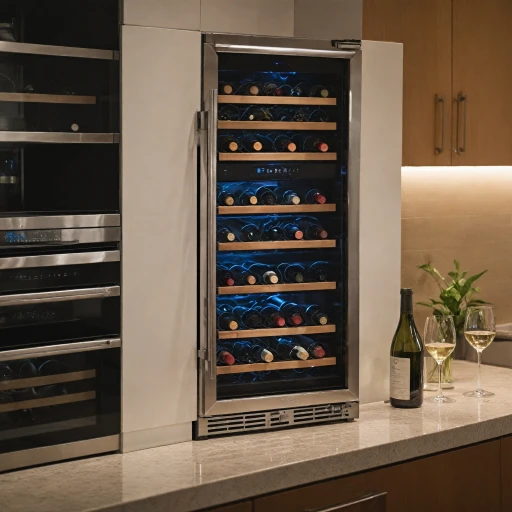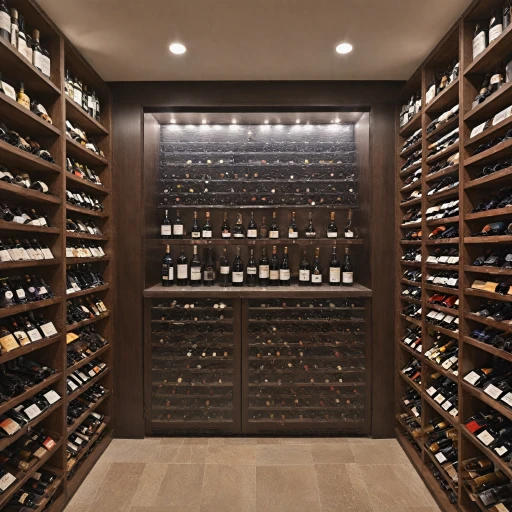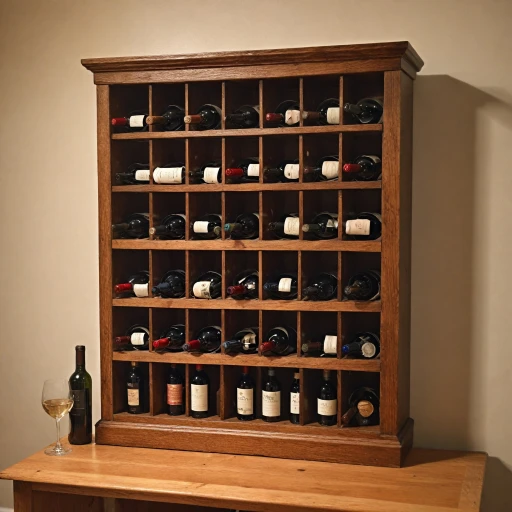
Understanding Wine Cooler Dimensions
Grasping the Basics of Wine Cooler Dimensions
Understanding the dimensions of wine coolers is crucial in determining the best fit for your bottle collection. When evaluating wine fridges, factors such as storage capacity, type of cooler, and available space play significant roles. Wine enthusiasts often find that choosing the right size wine fridge ensures optimal cooling and preservation of their wines. When considering the dimensions, it is important to account for different cooler models such as freestanding wine coolers or built-in units. These variations offer distinct space needs. Freestanding coolers, for instance, require additional spacing around them for proper ventilation, while built-in models seamlessly fit into cabinetry, optimizing space in a more compact way. The size of your wine cooler directly affects the storage capacity, typically measured in the number of bottles it can hold. Mini wine fridges might be suitable for casual wine drinkers with limited space, whereas larger wine cellars accommodate extensive collections ideal for ardent collectors. Dual zone wine refrigerators, offering adjustable temperature settings, are perfect for storing both red and white wines at recommended temperatures. For a deeper dive into how to assess if a spacious wine fridge fits your needs, explore the advantages of ample storage for avid wine collectors. Their insight guides you beyond the basic utility to sophisticated wine storage solutions. Achieving the best wine storage solution requires an understanding of these essentials, ensuring your fridge meets both practical and collection-specific demands.Assessing Your Wine Collection Needs
Evaluating the Needs of Your Vineyard Stash
When determining the ideal wine cooler size for your collection, it's crucial to assess your current and future storage requirements. Understanding your wine consumption habits and plans will help you determine the necessary capacity for your cooler. Here are some factors to consider:
- Number of Bottles: The size of your collection is a primary factor in deciding on a wine cooler. If you have a modest assortment of bottles or envisage acquiring more in the future, you'll want a model that accommodates growth.
- Wine Types: Consider the variety of wines you collect. Reds, whites, and sparkling wines have different storage requirements. A dual zone wine cooler may be your best option if you require different temperature settings for different wine types.
- Consumption Patterns: Evaluate how often you entertain or open bottles. If you're a regular host, a larger wine fridge with more zones might be appropriate.
- Ageing vs. Ready-to-Drink: If you intend to store wines for ageing, ensure that your cooler has the appropriate temperature and humidity settings to preserve your collection's quality. A single zone cooler model suits this purpose.
By thoughtfully assessing these factors, you can select a cooler that caters to your existing collection and future acquisitions. For more insights on choosing the ultimate wine fridge, visit Wine Cooler Guru.
Space Considerations for Wine Coolers
Optimizing Your Space for the Best Wine Storage Experience
When contemplating the ideal space for your wine cooler, there are several crucial factors to consider. Choosing the right spot is essential to maximizing the efficiency of your wine fridges and ensuring that your bottles are stored at the perfect temperature.
Firstly, it's important to assess the dimensions of the space you have available. Will your wine cooler be placed in a kitchen nook, or will it have its own dedicated area within your wine cellar? The dimensions of your space will directly influence whether you opt for a compact wine fridge or a larger model. To get a better idea of equipment tailored for smaller areas, you might find this guide for compact wine cellars useful.
- Built-in vs. Freestanding: Built-in wine fridges are designed for integration into cabinetry, providing a seamless look. They require precise measurements and adequate ventilation. Freestanding models, on the other hand, offer more flexibility in placement but generally require more space around them for ventilation.
- Single Zone vs. Dual Zone: If your collection includes a variety of wine types, a dual zone wine cooler may be the best choice as it allows different temperature settings for each zone, ensuring optimal storage conditions for both red and white wines.
- Compact Spaces: Compact spaces demand a careful selection of cooler size. Smaller units or those with a slim design can fit perfectly under countertops or in narrow spaces.
Remember, the key to choosing the right wine cooler is to understand your available space and integrate it seamlessly with your existing surroundings. This thoughtful planning will not only keep your collection at the right temperature but also enhance the aesthetic appeal of your living space. For more insights on dimensions and space considerations, explore this detailed article.
Comparing Built-in vs. Freestanding Wine Coolers
Exploring Built-In and Freestanding Wine Cooler Options
The choice between a built-in and freestanding wine cooler can significantly affect both the aesthetics and functionality of your wine storage, making it imperative to consider your preferences and requirements carefully. Each type comes with its own benefits, adapted to different needs and settings.
Built-in wine coolers are designed to seamlessly integrate into cabinetry, offering a sleek, cohesive look in kitchens or dining areas. When opting for a built model, consider ventilation requirements as these fridges need adequate airflow to function efficiently without overheating. They fit perfectly under counters or in kitchen islands, providing wine enthusiasts with easy access to their prized bottles while maintaining kitchen aesthetics.
Conversely, freestanding wine coolers offer more flexibility in placement around your home. These models often come with advanced features like dual zone cooling, allowing you to store different types of wines at their ideal temperatures. This versatility can be a game-changer for those with varied collections or who frequently entertain guests. Freestanding units usually have more design variety, including contemporary stainless steel finishes that appeal to modern sensibilities.
Both options have models that come in different sizes, with multiple zone wine temperature settings, catering to distinct wine storage requirements. Freestanding coolers generally offer larger storage capacity compared to their built counterparts; however, the best choice will depend on your space availability and the size of your wine collection. Understanding your wine storage priorities will guide you to a decision that aligns with your lifestyle and aesthetic preferences.
Energy Efficiency and Wine Cooler Sizes
Evaluating Wine Cooler Models for Efficiency
When choosing the best wine cooler for your collection, energy efficiency is a crucial factor to consider. Wine coolers, much like fridges, vary widely in energy consumption, and your choice impacts not only the environment but also your electricity bills. Modern wine fridges often boast advanced cooling technologies that ensure optimal wine storage while minimizing energy usage. Generally, built-in units with a stainless steel finish may offer enhanced insulation compared to older models, making them a reasonable choice for those keen on energy savings.Comparing Energy Requirements
Wine cooler efficiency varies depending on the type of unit. Single zone and dual zone models each have their own advantages. Single zone wine coolers are typically more energy-efficient than dual zone ones because they maintain a consistent temperature throughout. For wine enthusiasts with a diversified bottle collection necessitating varied cooling across zones, a dual zone cooler might be preferable despite its higher energy demands. These units allow for separate temperature settings, ideal for storing wine types that require different climates. When assessing energy efficiency, also consider cooler size. Larger models often consume more energy. However, if they house a substantial wine collection, they might still be the best choice when considering energy per bottle stored.Finding the Balance Between Size and Efficiency
While it might be tempting to opt for the most spacious wine cellar, it's essential to assess your wine storage needs to avoid unnecessary energy expenses. A carefully chosen wine refrigerator, possibly selecting a combination of both size and efficiency, ensures you maintain the delicate balance of temperature regulation without excessive energy usage. This form of balance not only guarantees the preservation of your precious bottles but is also mindful of operational costs. By taking into account the energy efficiency of your potential wine cooler, you'll be making an investment that benefits both your collection and your household budget.Budgeting for Your Wine Cooler Purchase
Financial Planning and Wine Cooler Acquisition
When preparing to invest in the ideal wine cooler, budgeting becomes a key step in selecting a unit that meets your needs without breaking the bank. There are several considerations to mull over as you balance cost with functionality.- Initial Purchase Cost: The price of wine coolers can vary widely depending on the type and model. Freestanding wine coolers generally cost less than built-in models, but you may find that built wine coolers offer a more seamless look that justifies the added expense.
- Size and Capacity: Consider how the size of the wine cooler will impact its price. Larger units with dual zone wine refrigeration may come at a higher cost but provide the flexibility to store different types of wine at their optimal temperatures.
- Energy Efficiency: While energy-efficient models may have a higher upfront cost, their long-term savings on electricity bills offer an advantage worth considering. Units with a stainless steel finish and advanced cooling technology tend to operate more efficiently.
- Features and Upgrades: Wine fridges come with a variety of features such as temperature control zones or digital displays, which can affect the price. Consider what features best support your wine storage needs.
- Maintenance and Longevity: Think about the maintenance costs involved. High-quality wine coolers, especially those with superior cooling systems and durable materials, might present a higher cost initially but can result in lower maintenance expenses over time.

